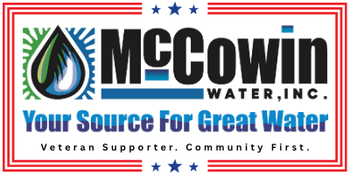Installing a whole-home water filtration system should be your first line of protection against water toxins. Municipal and community water supplies, having sources like rivers, streams, and lakes, are treated using chlorine and chloramines. While chlorine and chloramines have reduced the danger of waterborne pathogens and illness, they are not without their own set of issues. These harsh chemicals from municipal water treatment may harm your skin, clothes, home appliances, and pipelines.
Chlorine and chloramines corrode water pipelines, which can allow toxins like lead to seep into the water you drink and use. Agricultural cultivation may introduce chemicals like herbicides and pesticides, while severe rains or floods can transport pollutants, and droughts can induce cyanobacteria. These and other natural phenomena can affect what goes through your pipes and ultimately ends up in your home.
What Is the Purpose of a Whole-House Water Filtration System?
Many different water filtration systems are on the market, but a whole-home water filtration system is the most common. Depending on the water supply in your house, you may wish to lower water hardness, get rid of sediment, or remove the chlorine odor. The intricacy of whole-home water filters varies, but a solution is available for each water quality issue you may be experiencing.
Understanding Whole-Home Water Filteration Solutions
Home water filters come in five varieties: each filter targets specific contamination of water grade concerns; therefore, knowing your water’s composition is paramount. A lab water analysis or house water testing kit may help you identify contaminants in your water which will help you pick the right choice for you.
1. Water Softener Solutions
Hard water is created by a high level of dissolved minerals, such as calcium and magnesium, and requires a water softener. The ion exchange process removes magnesium and calcium ions from hard water and the resin traps calcium and magnesium, enabling softened water to pass through.
2. Sediment Filter Solutions
Filters catch and remove pollutants like dirt, sand, clay, and rust from water. Silt filters operate by physically preventing sediment from accessing your water supply. They have microscopic holes that are too small for particles to get through yet large enough to allow water to pass
3. Ultraviolet Disinfection Solutions
UV radiation damages the DNA of living organisms, like bacteria, viruses, parasites, and fungus, preventing them from reproducing and spreading illness in water supplies. Because dirt and debris can conceal tiny germs and viruses, UV purification systems work best when a sediment filter first treats water.
4. Acid Neutralizing Solutions
Acidic water has a pH below 7 and may cause corrosion, leaks, and green-blue stains in pipes and appliances. Acid neutralizers employ calcite (a mineral high in calcium and alkalinity) to reduce water acidity. Calcite dissolves in acidic water to neutralize it and raise its pH.
5. Carbon Filter Solutions
Carbon filters remove chlorine from water and improve its chemical taste and odor. Carbon water filters use activated carbon to purify water. When water passes through activated carbon, organics and pollutants are collected or changed by adsorption, leaving clean water behind.
The certified and insured professionals at McCowin Water, INC. specialize in water treatment equipment installations and will install your systems quickly and effectively and determine which types of filters you need for multiple lines of defense against contaminants.
What Is Home Water Filtration and Why Is It Vital for Your Household?
How Do I Know If I’m Ready for a House Water Filter System?
What is the average cost of a whole house water filtration system?
The Installation Process: What to Expect When Installing a Whole Home Water Filtration System
A Filtration Water System for Home Should Have These 3 Things


